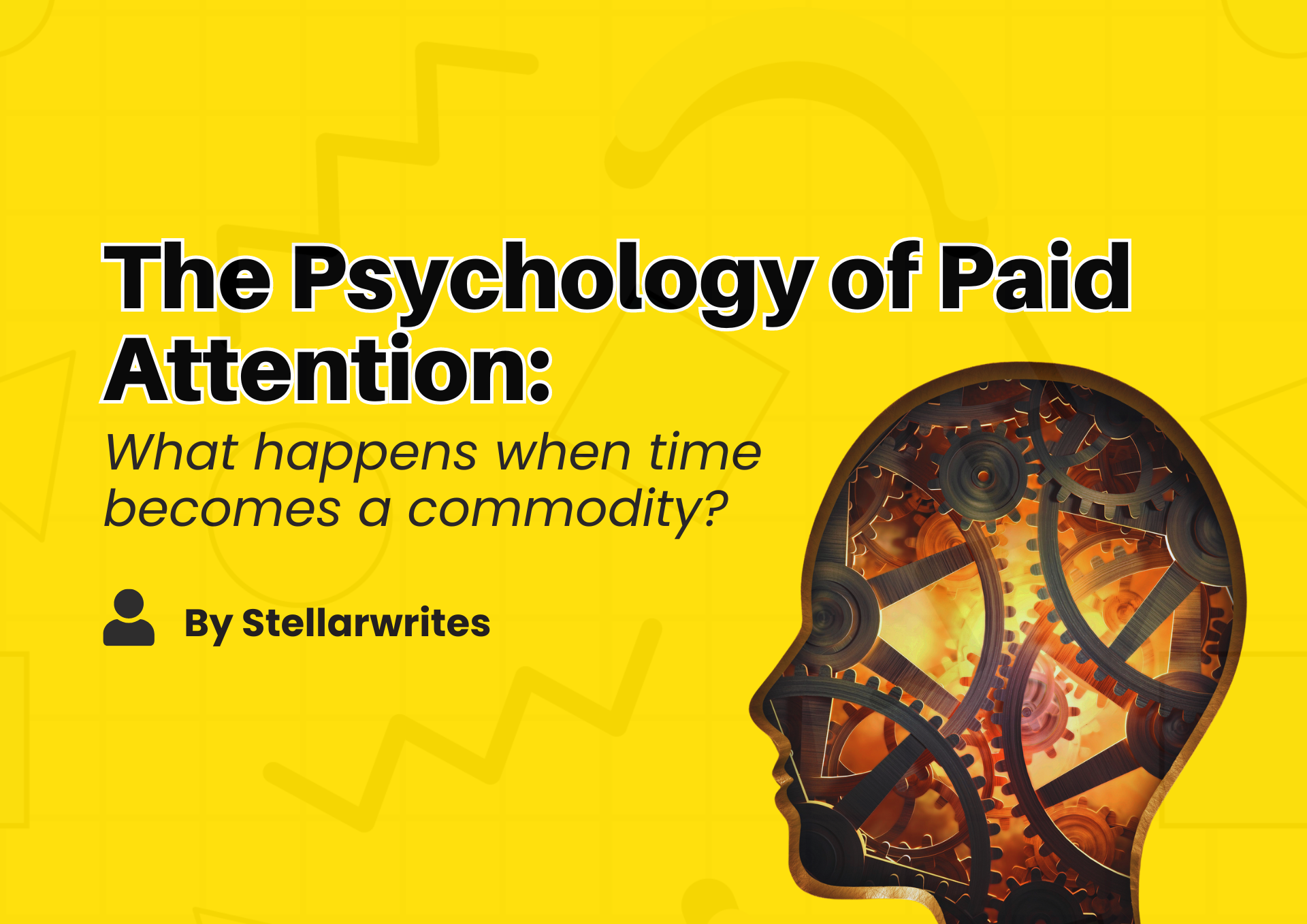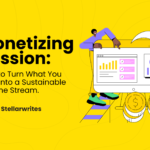Time is the commodity we trade every day in exchange for value. Regardless of the currency you use, the culture you were raised in, or the language you speak, we all trade our time in exchange for value.
The most basic human conundrum is that Time is Finite. We only have so many hours in a day, days in a year, and years in a lifetime. This scarcity makes time our most precious resource, yet we often find ourselves caught between spending it on what truly matters and what’s required to survive or succeed.
In today’s world, however, a new dynamic has emerged—one where attention itself has become a commodity.
As we begin to place a tangible value on our time and focus, we must ask: What happens when we start to see our time not just as something to be traded, but as something to be monetized?
In this article, we will break down what it truly means for attention to become a commodity and how this shift affects our perception of time and value. We’ll explore why this phenomenon is more than just an economic trend—it’s a fundamental change in how we navigate our personal and professional lives.
In a world where time is already our most precious resource, the idea of paying for attention feels like a natural progression—or does it? If you think about it, we’ve always traded our time for money, but something feels different now. It’s not just about hours we spend anymore; it’s about the quality of that time, the depth of focus, and the expertise behind it.

Take platforms like Carsle, for example. Here, experts don’t just offer their time—they offer their undivided attention, their tailored advice, their insight. What you’re paying for isn’t just a meeting or a consultation; it’s a concentrated effort to help you with your specific problem. And that kind of focus? It’s worth something. In fact, it’s worth a lot.
But let’s pause here for a second. When did we start pricing attention like this? And what does it say about the value we place on focus in our distraction-filled lives? These are the questions that come to mind as we enter this new economy, where attention isn’t just passive—it’s an active, valuable resource that can be bought and sold.
Here’s the thing about monetizing your time: it can be empowering. Knowing that your expertise has value can make you more intentional about how you spend your day. Maybe you’ve noticed that you’re more focused when you know that your time is literally worth something. It’s a mindset shift that can lead to better time management, increased productivity, and, honestly, a nice boost to your self-esteem.
But let’s not sugarcoat it. There’s a downside too. The constant pressure to monetize every moment can be exhausting. When your time starts to feel like a product on a shelf, you might find yourself struggling to unwind or relax. Suddenly, downtime feels like wasted time, and that’s a slippery slope to getting burnt out.
And then there’s the identity crisis. When your worth starts to feel tied to how much people are willing to pay for your time, it can be hard to separate yourself from your work. You start to see yourself not just as a person, but as a service provider—a product with a price tag. That’s a heavy psychological burden to carry if you ask me.
Did you Know?
When attention is a product, it changes the way we interact with people. Suddenly, every interaction can feel transactional. Are we engaging with others out of genuine interest, or because there’s a financial incentive involved? This is especially true in professional settings. Networking used to be about building relationships, but now, there’s often an unspoken transaction lurking beneath the surface.
And then there’s the issue of access. Paid attention creates new divides—those who can afford to pay for expertise, and those who can’t. It raises questions about equality. Is knowledge only for those who can pay for it? Are we creating a system where valuable insights are locked behind paywalls?
Yet, it’s not all negative. This shift also opens doors for people who might not have had opportunities in traditional careers. Monetizing attention allows individuals to break free from conventional paths and create their own niche. But with that freedom comes the challenge of navigating a world where everything—every interaction, every piece of advice—can be commodified.
The Future of Work and the Attention Economy.
As the attention economy evolves, it’s reshaping what work looks like. The days of 9-to-5 jobs are fading, replaced by fluid, flexible work models. Platforms like Carsle are leading this change, giving people the tools to monetize their expertise and control how they work.
But there’s a catch. In this new world, it’s not just about what you know—it’s about how you connect. Emotional intelligence and empathy are becoming just as valuable as knowledge. When people pay for your attention, they’re looking for more than just answers—they want meaningful interactions, too. This means that the future of work might be less about what you do and more about how you do it. Yes, you can monetize your attention, but you’ll also need to bring authenticity and empathy to the table. Because, at the end of the day, while time is money, genuine human connection is still priceless.
As we navigate this new era of paid attention, we’re forced to rethink how we value our time and relationships. The commodification of time and focus is more than just a trend—it’s a fundamental change in how we live and work. But with this shift comes a challenge: How do we make sure that as we monetize our attention, we don’t lose sight of what truly matters?
Maybe the answer lies in finding a balance. Yes, our time is valuable, but so is our well-being, our relationships, and our humanity. In a world where time is money, we can’t forget that some things are still beyond price.


